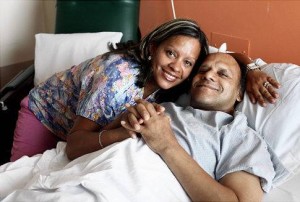What is Hospice
Hospice is not a place. It is a medical specialty for terminally ill patients — regardless of their specific disease — that can be delivered in a hospital, a nursing home, a hospice facility, the patient’s home or any other place the patient lives. Hospice is available to people of all ages, including children. The purpose of hospice is to focus on care at the end of a patient’s life. But it is more than that. Hospice is a state of mind. It is a turning away from aggressive medical measures designed to prolong life when those procedures are invasive and no longer productive. It is a recognition that the end of life is approaching.
When dealing with a terminal disease or situation, it’s easy to get caught up in medical details and forget that a patient also has social and emotional needs. Hospice is a holistic approach that cares for the whole patient — physically, emotionally and spiritually. The philosophy behind the hospice program is based on the premise that everyone has a right to die with dignity in as much comfort as possible, as alert as possible, and with an opportunity for personal growth and for the healing of personal relationships. Because care is centered on enhancing the quality of life even when the end is in sight, hospice is really all about living.
Doctors and nurses who practice within hospice are trained to focus on the patient, not on the disease. Specially trained for end-of-life care and experts in pain management, their aim is to create a comfort zone for patients without inducing the drug-related fog that robs patients of their will and senses. Entering hospice doesn’t mean a patient must give up his or her regular doctor; hospice doctors work with the patient’s attending physician to customize care.
 Hospice never hastens death, but it eases the journey for both patient and caregivers with an emphasis on quality of life over quantity of life. The hospice team — which includes doctors, nurses, aides, social workers, spiritual and bereavement counselors, and volunteers — all trained in end-of-life care, cradles patients and families in its nurturing embrace. It allows patients to focus not on dying, but on the things they find meaningful in their remaining days. That may mean attending that long-postponed family reunion, finishing a pet project or just talking with friends. It may mean attending to end- of-life tasks, such as creating a medical directive or signing a will. It may mean reminiscing about good times and tough times with a hospice volunteer in a “life review.” At a time of life’s greatest transition, hospice services can bring families closer together.
Hospice never hastens death, but it eases the journey for both patient and caregivers with an emphasis on quality of life over quantity of life. The hospice team — which includes doctors, nurses, aides, social workers, spiritual and bereavement counselors, and volunteers — all trained in end-of-life care, cradles patients and families in its nurturing embrace. It allows patients to focus not on dying, but on the things they find meaningful in their remaining days. That may mean attending that long-postponed family reunion, finishing a pet project or just talking with friends. It may mean attending to end- of-life tasks, such as creating a medical directive or signing a will. It may mean reminiscing about good times and tough times with a hospice volunteer in a “life review.” At a time of life’s greatest transition, hospice services can bring families closer together.
Caregivers are as much a part of the end-of-life process as patients, and oftentimes their needs and stresses are ignored. Families often find themselves exhausted and emotionally spent as a result of their responsibilities. By providing a support system for caregivers, hospice can bring relief. Volunteers can ease caregiving responsibilities by providing respite care, running errands or simply offering the patient companionship while caregivers take some time for them- selves. Aides are available to provide personal care to patients and can even attend to household duties. Hospice even provides those who are left behind with bereavement counseling and services during that first difficult year when all those birthdays, anniversaries and holidays can seem so empty.
Once a patient enters a hospice program, Medicare covers nearly all of the costs of medications and supplies. Hospice can even provide medical equipment, such as a hospital bed, walker or wheelchair, to allow patients to remain comfortably at home. For families struggling with the costs of medical care, hospice provides its own financial solutions. The best part is that hospice care is designed to meet each individual patient’s needs. There is no set formula, no agenda. Services are made available, and patients and caregivers can choose as much or as little as they desire.
Choosing hospice does not mean giving up. Some patients live far beyond six months, and miracles do happen. Hospice actually represents hope: it’s a time to find love and forgiveness and reconciliation with the past. Dignity and peace at the end of life are precious gifts to which everyone is entitled. Hospice is there to ensure that no one passes away alone or uncared-for, and that families are supported and comforted in their grief.
Contact Us: (405) 418-2530 or Toll Free 1 (855) 782-2222 – 24 hours a day / 7 days a week

